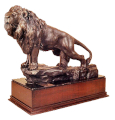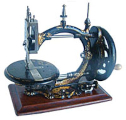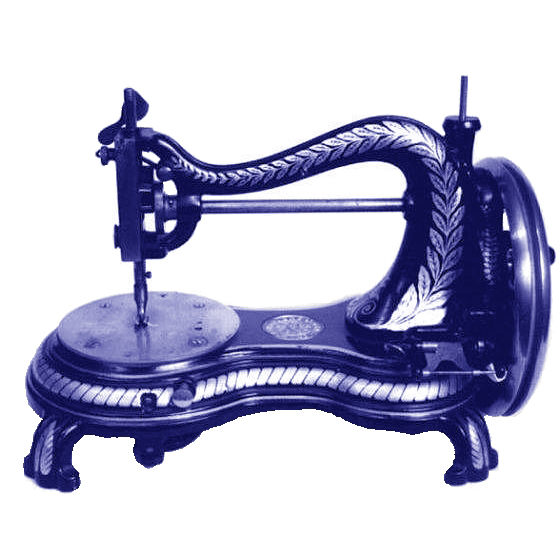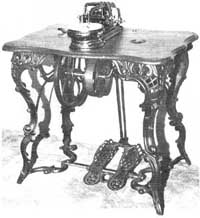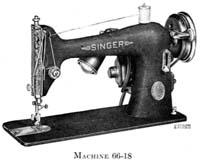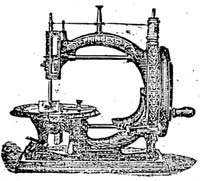Miss Wilson
ISMACS News
Issue 60
MANY WERE the fortunes made by some sewing-machine pioneers but not all were able to hold onto the money.
The following report comes from the New York World Magazine for February 1898. GF
Today a frail, poorly-dressed woman, with a face seared and shrunken by misfortune, came into the office of the Selectmen in this city.
She remained unseen in a corner of the room until those in waiting had finished their business, and then, with timid manner and faltering voice, she approached the clerk. "I am seeking admission to the almshouse", she said.
If a shell from a Spanish gunboat had dropped through the roof the clerk could not have been stricken with greater amazement.
"What! this isn't A B Wilson's daughter?" he said.
"Yes", was the weary reply. "I have had to come to it".
The woman is Harriet Ethel Wilson Merwin, the daughter of A B Wilson, the inventor of the Wheeler & Wilson sewing machine. It was the last chapter in a pathetic story of the use and fall of riches.
This woman had lived in the luxuries of wealth for years; her home had been the great stone mansion built by her father at a cost of $100,000 on the West Side Hill, overlooking Waterbury. She had enjoyed all the pleasures that could be given by the free-handed, generous man who had made a million dollars from the resources of his inventive brain.
When Mr Wilson died 10 years ago it was believed that a large fortune had been left to his wife and daughter. He had invested $400,000 in a big hotel and real estate at North Adams, Mass, and was credited with large holdings at other places. At one time he was a millionaire.
It soon was known that Wilson was heavily involved, and that the widow and daughter were practically dependent upon friends.
A few years later the daughter, Miss Harriet, married Henry Merwin, of Merwin's Point, but a divorce followed. The mother died. Then the support which the Wheeler & Wilson Sewing Machine Company gave to the daughter was cut off, and she went to live with a nurse who had been employed by the Wilsons in the days of their prosperity. Finally she was obliged to ask for public charity.
Miss Wilson (for she resumed her maiden name after the divorce) broke down when she made her pitiful request for care at the almshouse.
She is a carefully-bred gentlewoman. Her education was obtained in the finest schools of this country and Europe. She is too frail for work, and came to the office of the Selectmen only after all other means for support had been exhausted. She will have comfortable quarters in the town-house for the poor.
